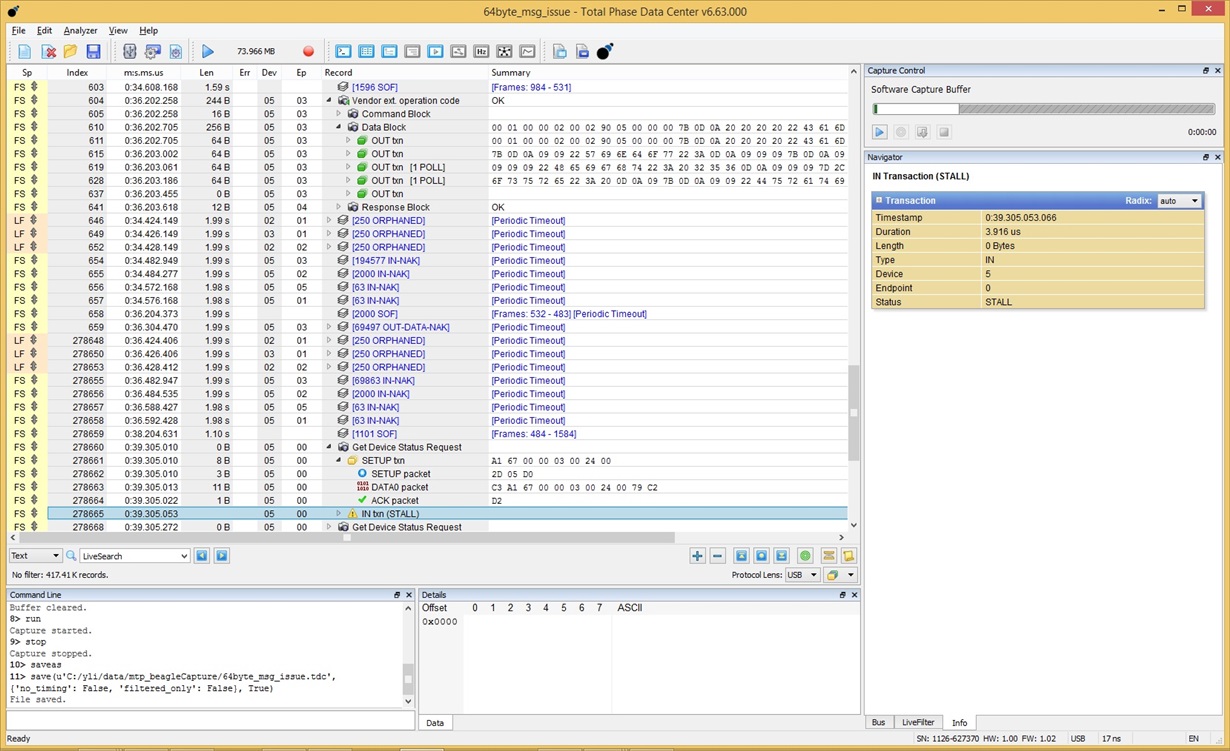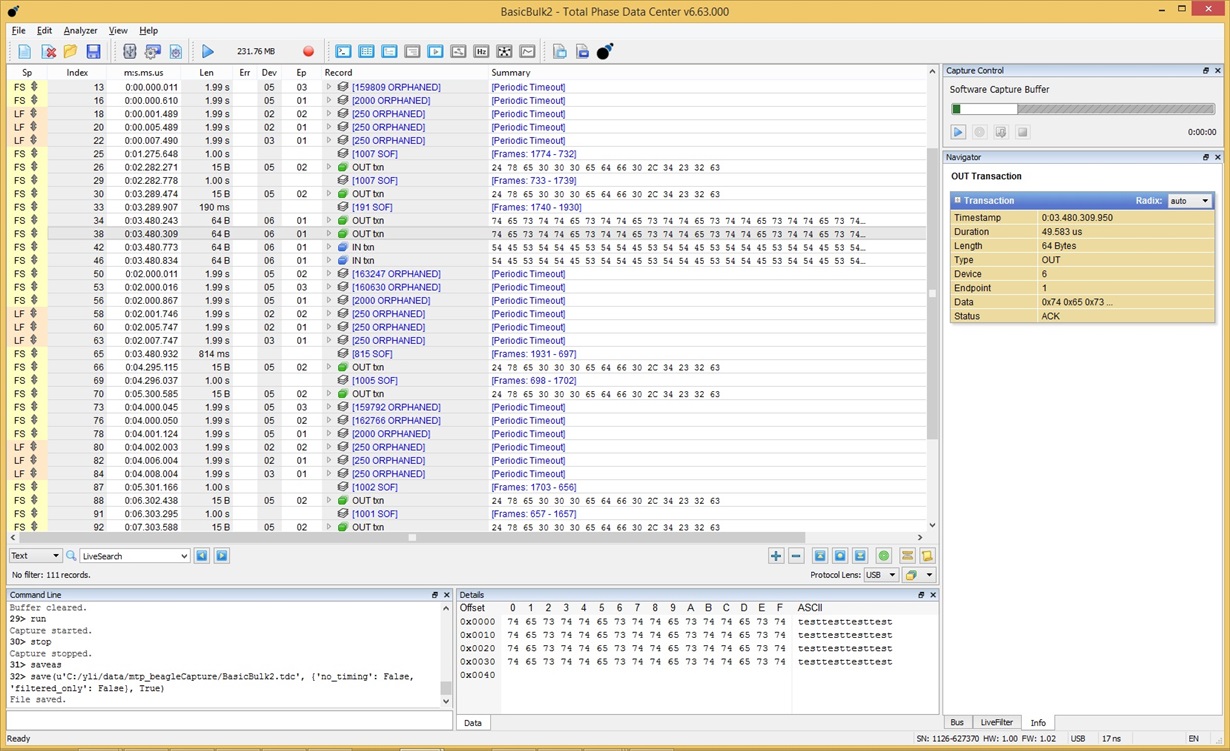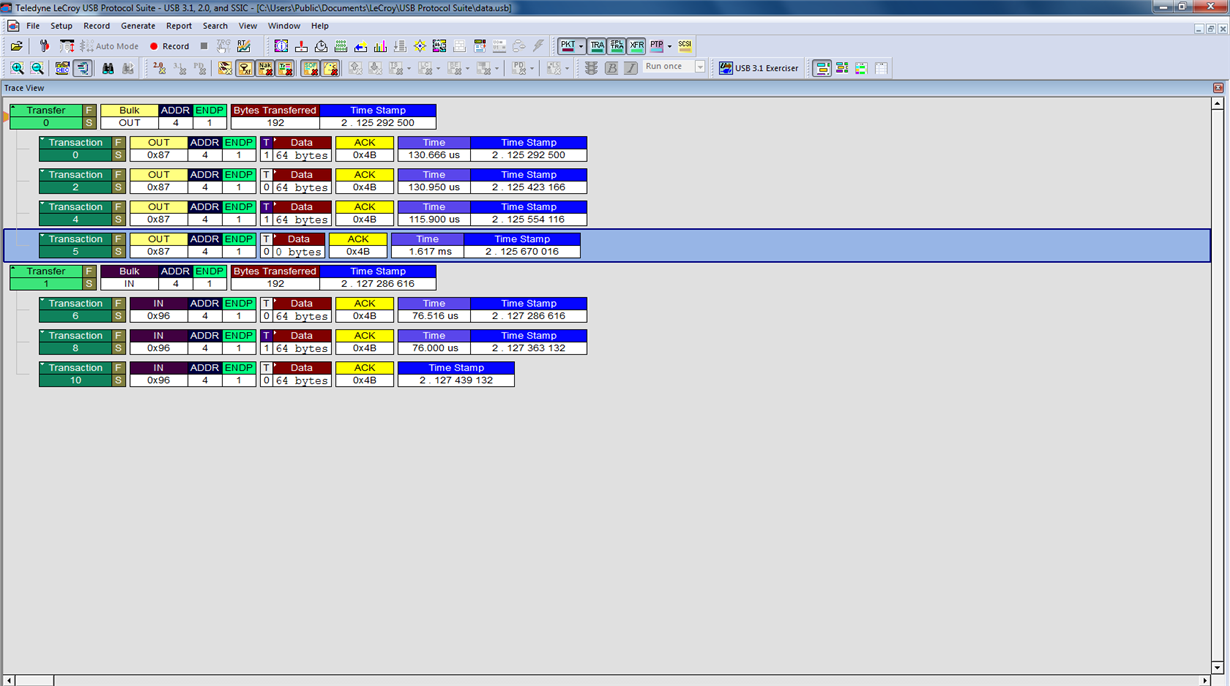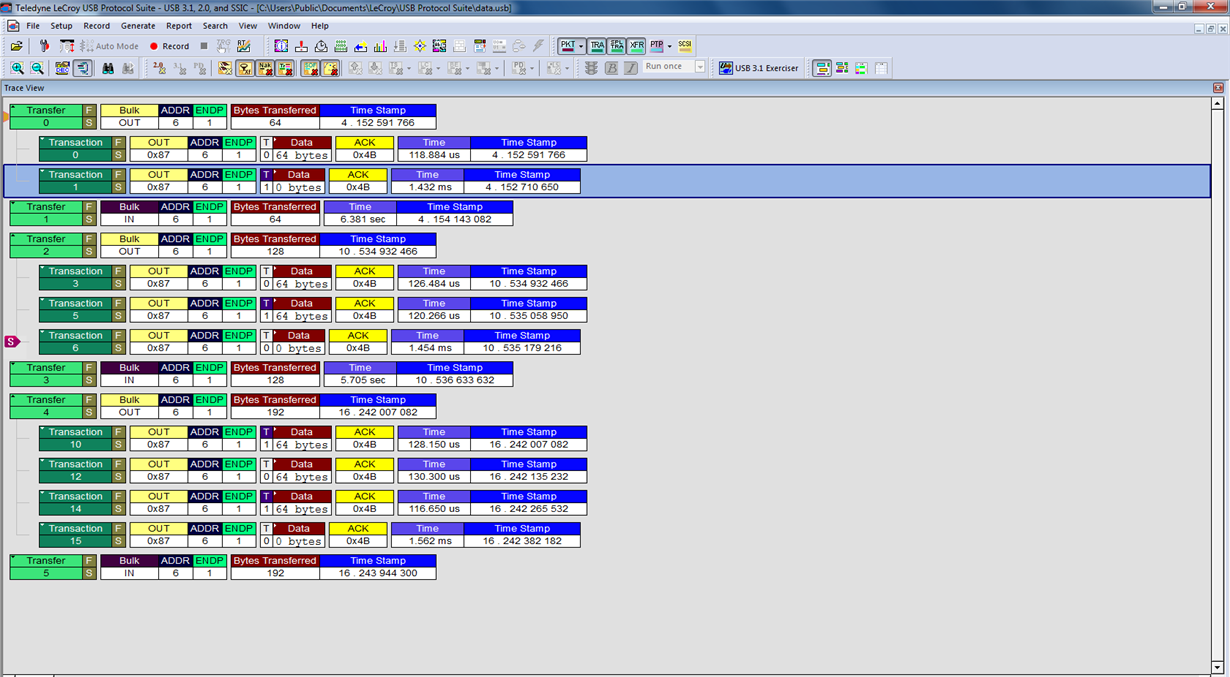I am currently running Media Transfer protocol over BULK endpoints on a TIVA processor. I have noticed that the USB link hangs when messages are sent that are multiples of 64 bytes. I have gotten around this issue on the TIVA transmit side by detecting this situation and transmitting an extra byte. However, on the receive side (OUT endpoint) I cannot control how much data the host sends. Every time the host sends a message that is a multiple of 64 bytes, the USB link hangs. I would have to unplug the USB cable and plug it back in to revive the link. I have seen numerous posts regarding the IN endpoint but nothing on the OUT endpoint. Has anyone else encountered this issue and have a solution? I have attached a screenshot of the Beagle sniffer trace of the USB messages - error occurs at msg index 604 .
-Yan





